Fiction Books by Black Authors for Your Antiracist Reading List
These novels by black authors tell amazing stories and will help white readers improve their empathy and understanding of the systemic racism that black people face every day.
This post may include affiliate links. That means if you click and make a purchase, I may earn a small commission. Please see Disclosures for more information.
Share:
These fiction books by black authors are excellent additions to your antiracist reading list. Read on for more about why fiction should be a part of learning how best to support Black Lives Matter.
As people have raised their voices in protest following the murder of George Floyd at the hands of police officers in Minneapolis, at the same time, people are also lowering them.
Many are taking time to be quiet, to listen, to read, and to educate themselves to learn how to be allies to the #BlackLivesMatter movement. To allow empathy and understanding in. To reflect on the ways they are complicit in the systemic racism that has plagued this country for far too long.
I am obviously a white woman, with so many privileges, and I am doing this work myself. I commit to continue doing it, and to working to become a better ally.
As a reader and someone who writes about books, my first instinct is to turn to books–and it’s clear that people around the country are doing the same.
Many nonfiction antiracist books are selling out, and library waiting lists are months long.
You’ve probably seen the reading lists, and I’ll share a few books here in case you haven’t:
You’ve likely heard of most of these in the past few weeks, and maybe you’ve bought some. As of this writing, I’ve read only three of them and many more have made their way onto my reading list.
Seeing people who want to be allies embrace these messages, support black authors, and ready themselves to have hard discussions and be part of the solution for systemic change is encouraging.
(I also hope this is a loud and clear signal to the publishing industry to seek out, publish, and aggressively market books by black authors–AND PAY THEM. See the #PublishingPaidMe hashtag on Twitter for more on this, and pay attention to the discrepancies between white and black authors.)
People are fired up, ready to read, examine themselves, and take action.
But it also feels like we’re cramming for a test we should have been studying for our entire lives.
Like maybe we’ll read a few books, become woke, and check our antiracist box before we go back to our lives as before. We’ll again leave the work to the black people who don’t ever get to check the box and move on, who don’t get to relegate the systemic racism they face daily to the back of their minds, to be examined only when it’s convenient.
This is a pessimistic way of viewing things and I hope that it’s not true. There are definite signs that real change is happening.
What is true is that burnout is real. Black people have been telling us for years: they are tired. It is not their job to educate white people. They have been fighting, and fighting, and they need our help–not as “white saviors,” but as fellow activists and people who acknowledge and care that the system is stacked against them.
They are burned out, and it’s okay for white people to have to push right now. To push to the edge of burnout and comfort. To try to take some of that load that black people have been carrying–because they still haven’t dropped it, even though they’re tired. It is right for us to shoulder some of that burden and is what should be happening.
But as we do this, we should also be planning for how we will sustain our efforts.
In one year, will the protests still be happening? Maybe, but probably not on the same scale.
Will antiracist nonfiction books still dominate book sales? Maybe, but readers may also have returned to their favorite genres.
Will readers be burned out, after their cramming, and stop their fervent support of black authors? I certainly hope not.
Reading Fiction as Part of Antiracist Work
This is where your reading list comes in. Your regular, I’m-not-cramming-for-anything-but-reading-because-I-love-it reading list.
Because moving forward, we need to know and internalize this: regular, daily reading for enjoyment and reading diverse books, reading books by black authors, and reading to become an antiracist are not mutually exclusive.
Black authors are writing books about black characters with rich stories, complex relationships, and compelling plots. They always have been.
These books are not all “issues” books, though the stories likely include discussions of race–racial issues are part of the daily lives of black people, and so they are part of the lives and stories of black fictional characters.
And the more white readers read these books, the more we understand and empathize with black people and the struggles they face daily. Because it’s story that allows us to move into that place of empathy. Fiction–and especially literary fiction–has been proven to make readers more empathetic.
From the article linked above: “Although literary fiction tends to be more realistic than popular fiction, the characters disrupt reader expectations, undermining prejudices and stereotypes. They support and teach us values about social behavior, such as the importance of understanding those who are different from ourselves.”
Choosing more books by black authors should be natural for all readers because they are telling interesting stories with a multitude of perspectives–just like white authors are.
Again, we’re not just checking boxes here. You haven’t learned about The Black Experience in America because you’ve read a few books. Approaching it in that way is reductive and insulting–I want to emphasize that there is no comprehensive list of quintessential “black books.”
But getting inside the lives of characters who are experiencing things similar to the strangers on the news gives you a point of reference, especially if you don’t experience those things yourself.
You might have a better understanding of the fear of the black man on the news being arrested, and how his family might be affected, because you “know” Roy and Celestial from An American Marriage.
You might feel ready to stand alongside protestors because you were in the car with Starr, and felt her grief and anger when police shot her friend Khalil in The Hate U Give.
And you might feel compelled to examine your own privilege, how you may be handing out microaggressions, and how your well-meaning efforts can be harmful to black people, because you met Emira and Alix in Such a Fun Age.
Fiction as a Complement to the Real Work of Antiracism
I am not saying that only reading fiction is enough.
It is not nearly enough. The stories of fictional characters aren’t enough. We need to read and listen to the stories of real people as well. There is work to do, and many black writers and activists are sharing their stories.
Listen to them. Read the books. Have the discussions. The resources these writers and activists are putting out are easy to find, and they have willingly taken the role of helping to educate. Be gracious, accept their gift, and thank them by listening, learning, and acting.
I would never presume to position myself as an educator in this area; I am listening and learning myself, and doing these things will always be part of my work as a white woman.
As a book blogger, my purpose in writing this is to add a few more small things that we, as readers, can do from now until forever:
Read books by black authors.
Read historical fiction about black history, and that upends the history you were taught and the role of black people in it.
Read literary, contemporary, and popular fiction about black families, friendships, and relationships.
Read YA novels about growing up black.
Read books with your kids about black kids.
Make these books a normal part of your reading life.
Also, if you haven’t previously paid attention to who is writing the books you read: start.
Yes, authors of any race can write fantastic books. But as the #PublishingPaidMe hashtag shows, those that are amplified by the industry are predominantly white.
So yes, readers do need to make an effort to find, read, and recommend books by black authors.
As a book blogger, I commit to working to do more of this myself, and helping to amplify those voices on my own small platform.
11 Must-Read Fiction Books by Black Authors
These are just some of my favorite fiction books by black authors that I’ve read in the last few years. I hope you’ll add yours in the comments.
Author: Ya’a Gyasi
Homegoing is an epic generational novel following the family lines of two half-sisters born in Ghana 300 years ago: one is married off to an English slave trader while the other is sold into slavery. Each chapter follows a new descendant of the women, illustrating how injustices of the past reverberate through the lives and struggles of future generations, and how the oppression continues, even 150 years after abolition. One of my best reads of 2017.
Author: Tayari Jones
Roy and Celestial are on top of the world: young, talented, newlyweds, and planning their futures and family. When a trip to Roy’s hometown puts them in the wrong place at the wrong time, Roy finds himself convicted of a crime he didn’t commit, and sentenced to 12 years in prison.
Their dreams shattered, Roy lives in limbo and struggles to hold onto his marriage, while Celestial tries to figure out how to live life without her husband present.
As years go by, the two must determine whether their marriage can survive Roy’s incarceration. This book is a thoughtful look at the personal costs of racial injustice and a system that assumes guilt in the United States.
Author: Chimamanda Ngozi Adichie
After leaving a Nigeria under military rule, Ifemelu and Obinze plan to move to the United States to start a new life. But 9/11 keeps Obinze from joining Ifemelu, and over 15 years they each seek their own identities in very different ways.
Ifemelu pursues academics while facing her own blackness for the first time, now living in a country where her race is defining in ways that it wasn’t in Nigeria. Obinze, meanwhile, lives a life in dangerous limbo in London, where he is undocumented.
When they finally come together, they must determine if what they’ve learned about themselves and the world can allow them to be together in a new Nigeria.
Author: Angie Thomas
When 16-year-old Starr is witness to a police officer shooting her unarmed best friend, she is torn between staying silent and speaking out. Starr lives in two worlds: the world of her affluent private school and that of her black neighborhood that is rocked by the shooting.
The case quickly makes national headlines and as tensions rise, Starr feels the pull to tell her side of the story and refute attacks on her friend’s character, even as she faces intimidation from police and local gangs. This powerful novel inspired by the Black Lives Matter movement delves into the shootings of unarmed Black people by police officers, the lack of justice in the aftermath, and white privilege.
Author: Angie Thomas
Bri is an aspiring hip hop artist, supremely talented and the daughter of a late underground legend. She views success in hip hop as not just a dream, but an imperative; her family is on the verge of eviction, the power is off, and the fridge is empty.
But the path to success is fraught with compromise, particularly when you’re young, black, poor, and in hip hop. Bri soon finds herself pulled between her own ideals and the persona the industry wants her to adopt.
Thomas perfectly captures how exhausting and frustrating it is when the world wants you to be one way for its own money-making purposes, but also expects perfection and humility from you for its own comfort. Any sign of anger or frustration is used against you, words are twisted, intentions are misconstrued. It’s no-win, all the time.
This is an eye-opening book for many reasons, not least of which is the incredible talent and creativity of freestyle rappers. It’s a world I’m unfamiliar with, and my respect for it increased 100-fold just by reading this amazing book.
Author: Octavia E. Butler
Kindred is famous for being the first science fiction novel written by a black woman. That’s significant, but the science fiction part of this story–the time travel–isn’t what makes it so compelling.
In the 1970s, a 26-year-old black woman is suddenly pulled back through time to save the life of a young boy who grows to be a slave owner in 1800s Maryland. Yanked without warning between present and past and back again, she returns multiple times throughout his life (as only minutes or hours pass in her own), and she realizes that she must keep him alive so he can father her great-grandmother. But through this, she also must live the life of a slave and face all the indignities, hardships, and heartbreaks that come with it.
This is an illuminating look at the lives of slaves, cognizant of our modern ideas that the people who were slaves must have been tougher than people now, somehow superhuman in their ability to endure. But the wounds from the whips and chains and inhuman disregard for their lives and families were real, and Butler sensitively examines the ways in which the people were beaten and worn into submission.
Author: Nic Stone
This YA novel is similar to The Hate U Give in many ways–a black high school student, working hard in a private school with mostly white classmates, has run-ins with police that end in violence.
In Dear Martin, Justyce studies the words of Martin Luther King Jr. and writes him letters, hoping for clarity in how he can stand up to injustice in a nonviolent way. Justyce finds himself torn between his black family and neighbors and his white friends, many of whom are convinced that black people have already achieved equality.
Justyce, meanwhile, finds that just walking or driving while black can get him killed, and the smallest bit of evidence taken out of context–a photo, a conversation–is enough to label him a thug in both a court of law and the court of public opinion. This is a powerful, quick read, told mostly through dialogue and Justyce’s letters to Martin. Excellent on audio.
Author: Gilly Segal and Kimberly Jones
At a regular Friday-night high school football game, violence suddenly erupts and ripples throughout the city. Lena–popular, confident, and black–takes refuge behind the concession stand, where Campbell–shy, new in town, and white–has been working. The unlikely pair team up to find safe spaces to hide as they attempt to make their way out of the violence and home to safety. Their reliance on one another forces them to face each other’s perspective head on.
Told through alternating narration (written by two different authors), this was excellent as an audiobook with its fast pace and intense scenes. While I didn’t find it quite as impactful as The Hate U Give or Dear Martin, fans of both those books might appreciate this one–and it was blurbed by authors Angie Thomas and Nic Stone.
Author: Colson Whitehead
In the Jim Crow South, a simple mistake sends a black boy to a reform school where boys are brutalized and sometimes disappear. Tasked only with surviving, Elwood holds onto his ideals, shaped by the inspiring words of Dr. Martin Luther King. His friend Turner, however, is just as certain in his cynicism and their conflicting views bring them to a crossroad, leading to a choice that has repercussions for years to come.
Based on the real-life Dozier School in Florida, which only shut down in 2011 and where many unmarked graves have since been discovered, The Nickel Boys is a devastating read about the brutality wrought by both the individuals in power and the corrupt system that allowed them to remain there. Heartbreaking, disturbing (though not overly graphic if you’re a sensitive reader), and highly recommended.
Author: Kiley Reid
When Emira–a black woman in her mid-twenties–is accused of kidnapping her young babysitting charge one night at the grocery store, her affluent white employer, Alix, tries too hard to make it up to her. Emira just wants the whole thing to go away while she figures out her life, but a man at the store caught it all on video.
Emira runs into him again and the two start a relationship–but his interest in her may not be what it seems. Alix nurses an unhealthy fascination with Emira and her active social life, while Emira’s friends struggle with how to help her find her footing.
This debut is a lot of things: quarter-life crisis novel, social commentary on race and privilege, and a subtle takedown of microaggressions that’s worth the read and reflection.
Author: Brit Bennett
Following her mother’s suicide, 17-year-old Nadia Turner looks for love and solace in the preacher’s son, Luke Sheppard. Smart, driven, and rebellious, she finds herself in place she never expected: the local abortion clinic. Abandoned by Luke, she attempts to move on while holding her secret close, carefully side-stepping her still-grieving father. She clings to her new best friend, Aubrey, and plans for her future at college and in law school. When Nadia moves away, Aubrey grows closer to Luke, unaware of his history with Nadia. The three try to move forward but are continually pulled back to that summer, haunted by the choices made, the secrets kept, and the lives changed beyond just their own.
The Mothers is an emotional and incredibly well-written book that examines how difficult choices and lasting griefs can stay with us. The story is never overtaken by the many “issues” it covers, which is refreshing.
This was Bennett’s debut novel, and she has clear insight into that tentative time between childhood and adulthood when we all must choose how we let the past define our future. I’m looking forward to her next book, The Vanishing Half.
Please share your own favorites in the comments.

Share:
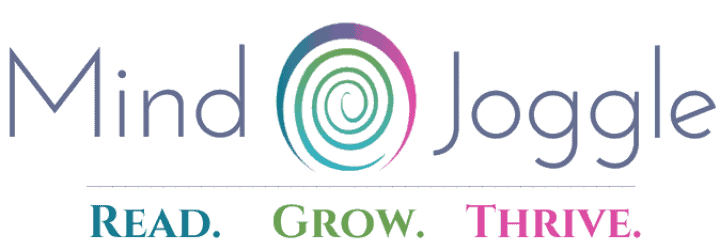
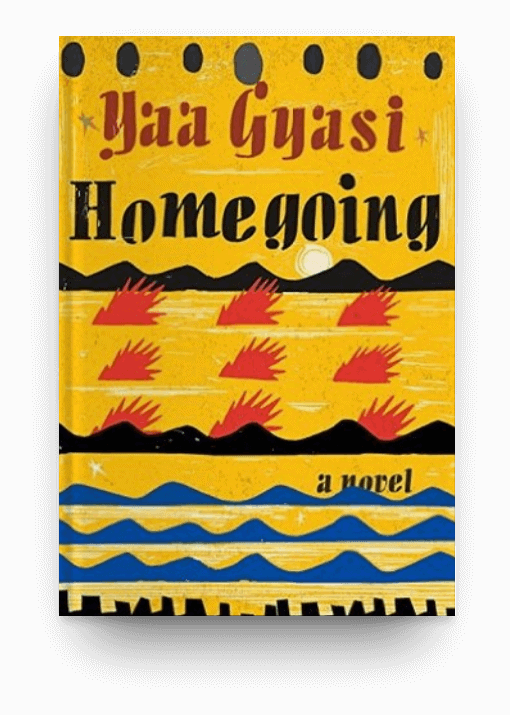
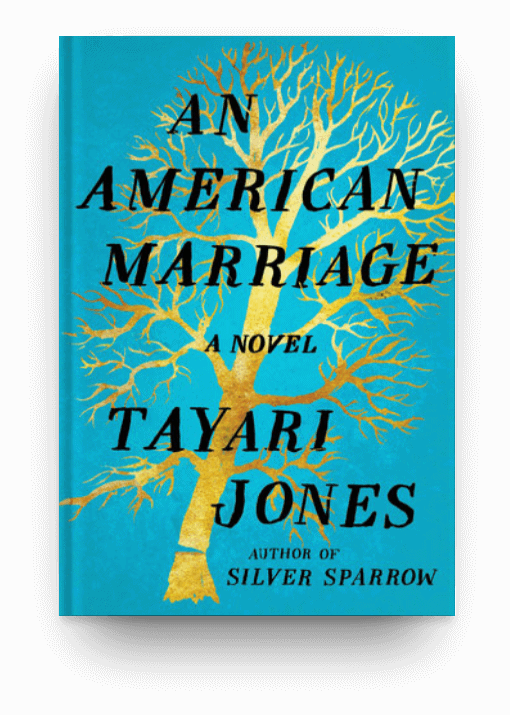
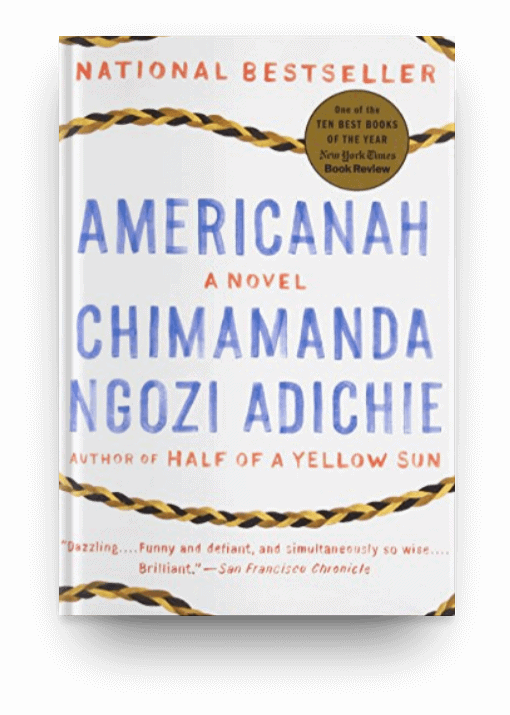
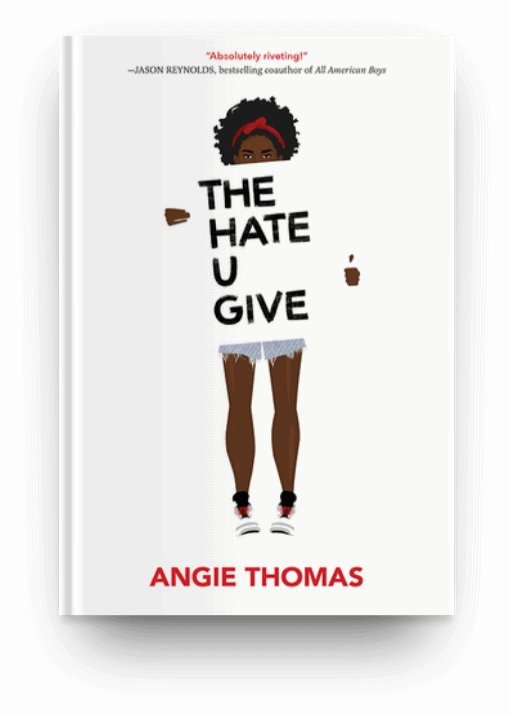


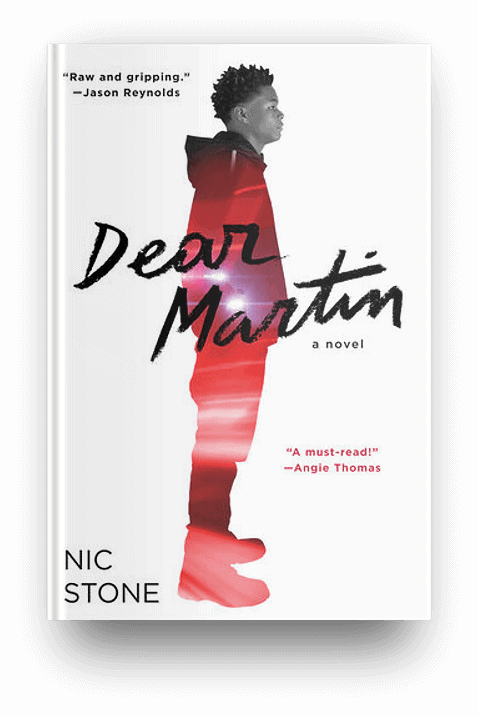
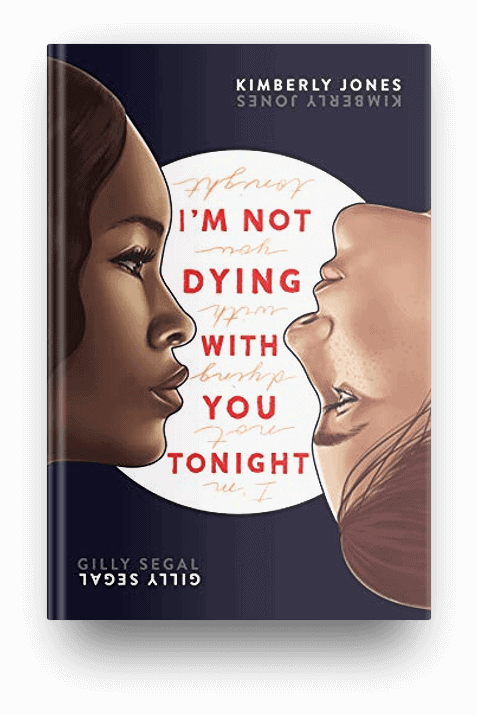
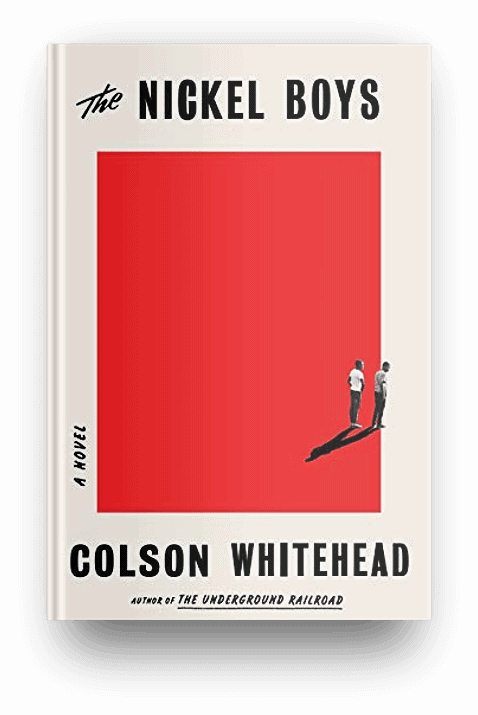

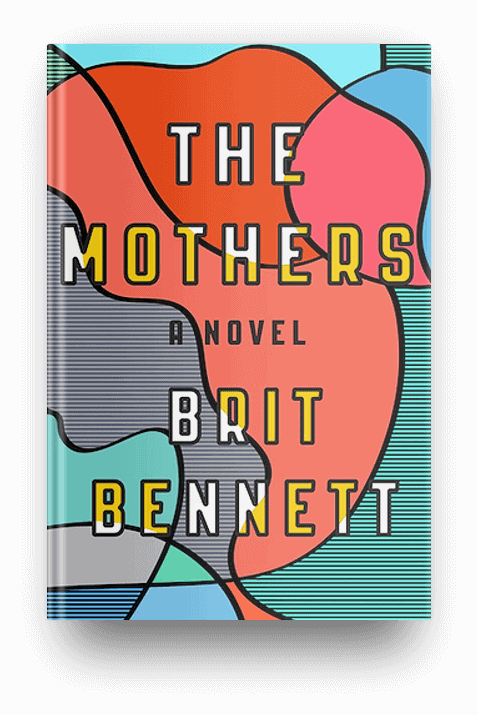
This is a great post Allison. The list, for sure, but especially the discussion at the top. I’ve read nearly all of these and loved them- especially Nickel Boys. My rec is How it Went Down by Kekla Magoon.
Thanks, Tina. Nickel Boys was amazing and shocking. How It Went Down looks excellent–thanks for putting it on my radar!